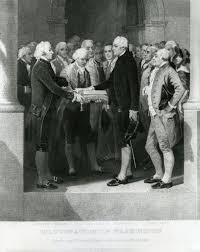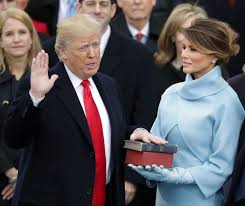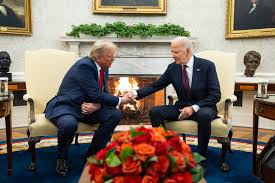In the United States, Inauguration Day is more than just the swearing-in of a new president—it is a celebration of democracy, a moment of peaceful transition, and a reminder of the principles that the nation was built upon. Held every four years on January 20th, this historic event marks the end of one presidential term and the beginning of another, often accompanied by pomp, ceremony, and widespread media attention. Yet beyond the glitter and glamour, Inauguration Day serves as a powerful symbol of continuity, unity, and the collective will of the American people.
A Tradition Rooted in the Constitution
The roots of Inauguration Day date back to the very beginning of the United States, when the Constitution outlined the peaceful transition of power. The 20th Amendment, ratified in 1933, established January 20th as the official date for presidential inaugurations, ensuring that the new administration could begin its work immediately following the end of the previous president’s term at noon on that day. The very act of taking the oath of office is a solemn moment that encapsulates the values enshrined in the Constitution and the ideals of liberty, justice, and democracy.

The first U.S. presidential inauguration took place in 1789 when George Washington was sworn in as the nation’s first president. This historic occasion set the tone for future inaugurations, emphasizing the significance of the event as a peaceful transition of power. Over time, the ceremony has evolved, but the core principle of the peaceful transfer of power remains unchanged.
The Rituals and Ceremonies
Inauguration Day is a carefully choreographed series of events, each imbued with tradition and meaning. The day typically begins with the president-elect attending a church service, where prayers are offered for the incoming administration. This marks a moment of reflection and grounding before the day’s formal proceedings.
The centerpiece of Inauguration Day is the swearing-in ceremony, where the president-elect takes the oath of office. The oath, prescribed by the Constitution, is simple yet profound: “I do solemnly swear (or affirm) that I will faithfully execute the Office of President of the United States, and will to the best of my Ability, preserve, protect and defend the Constitution of the United States.” The Chief Justice of the United States Supreme Court typically administers the oath, though there have been occasions when other dignitaries have done so.

Following the oath, the new president delivers an inaugural address, outlining their vision for the nation and often offering a message of unity, reconciliation, and hope. The inaugural address is a key moment for the new president to set the tone for their administration, speaking directly to the American people and the world. Some inaugural addresses have become historic, such as Franklin D. Roosevelt’s “Nothing to Fear but Fear Itself” speech during the Great Depression, or John F. Kennedy’s “Ask not what your country can do for you” address, which inspired a generation.
After the ceremony, the president and their family typically participate in a parade down Pennsylvania Avenue, a time-honored tradition that symbolizes the people’s connection to their leaders. The day concludes with various balls, dinners, and festivities, where the new administration is celebrated by both political allies and citizens alike.
The Significance of Inauguration Day
Inauguration Day is much more than a ritualistic observance; it is a vital reflection of the core values that define American democracy. One of the most important aspects of this day is the peaceful transfer of power. In countries around the world, transitions of power can often be marked by conflict, violence, or even civil war. The United States stands out as a beacon of stability, where leadership changes hands peacefully and in accordance with the rule of law.

This peaceful transition is a testament to the strength of American democratic institutions. It is a reminder that no individual is above the law and that power is derived from the will of the people. In this sense, Inauguration Day is a reaffirmation of the trust that citizens place in the democratic process, and a symbol that despite differences of opinion or political division, the nation can come together and respect the outcome of a free and fair election.
In addition to the peaceful transfer of power, Inauguration Day provides an opportunity for reflection on the challenges and hopes of the nation. Each inaugural address is an opportunity for the new president to address not only the immediate challenges facing the country but also to offer a vision for the future. It is a time for the American people to hear from their leader on where the country stands and where it is headed. The words spoken on Inauguration Day are often remembered for their rhetorical power and their ability to capture the national mood.
The Role of the Public and the Media
Inauguration Day is not just a governmental affair; it is also a major event for the public and the media. Citizens from across the country, whether invited guests or ordinary people, travel to Washington, D.C., to witness history in the making. The event is broadcast to millions of people around the world, reinforcing the global significance of the United States as a model for democracy. The media plays a crucial role in shaping public perception of the event, offering commentary, analysis, and coverage of both the ceremonial aspects and the political implications of the inauguration.
For many Americans, watching the inauguration is a way to participate in the democratic process and connect with the nation’s history. The sense of unity and hope that often accompanies Inauguration Day provides a sense of shared purpose, regardless of political affiliation.
A Day of Unity Amidst Division
Despite the ceremonial nature of the day, Inauguration Day can sometimes underscore the divisions within the country. Political opponents may feel disillusioned or anxious about the incoming administration, and public protests are not uncommon. However, it is important to remember that these expressions of dissent are themselves a sign of the vibrancy of American democracy—where citizens are free to voice their opinions, even in the face of significant political change.
In this way, Inauguration Day offers a unique moment in which to reflect on the challenges of the past, the opportunities of the present, and the potential of the future. It is a reminder that, even in times of division, the core principles of democracy—freedom, equality, and the rule of law—remain the bedrock of the American political system.
Conclusion
Inauguration Day is more than a ceremonial occasion; it is a reminder of the enduring strength and resilience of American democracy. It highlights the peaceful transition of power, the importance of national unity, and the shared belief in the principles outlined by the nation’s founders. Whether in times of triumph or turmoil, Inauguration Day serves as a testament to the power of democracy to endure and evolve. It is a day for the nation to come together, celebrate its ideals, and look ahead to the future with hope and optimism.
